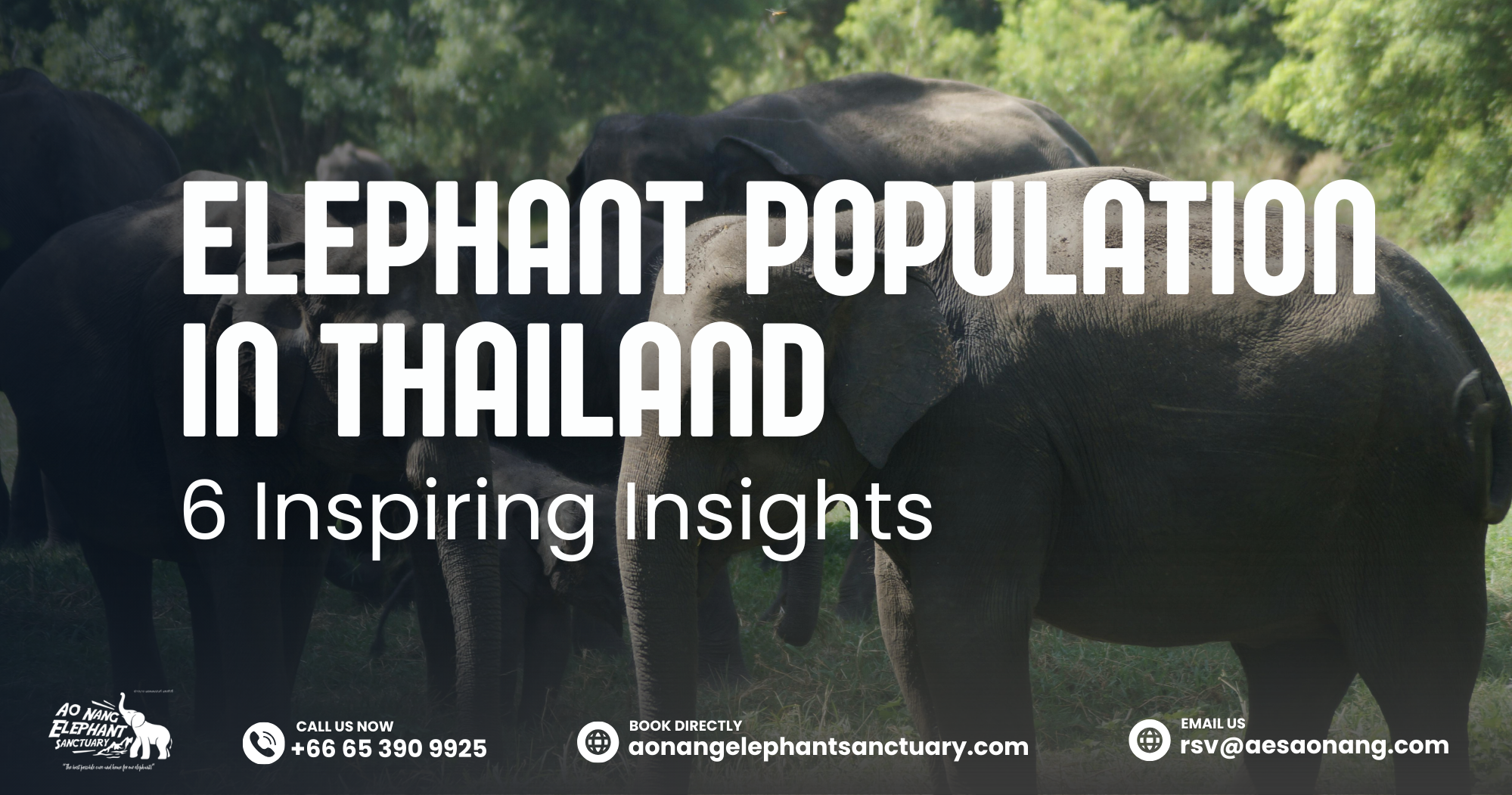Ethical Elephant Tourism In Thailand: The Do’s And Don’ts
Thailand is where one can find the glorious Asian elephant, the iconic representation of power, wisdom, and beauty. These lovely animals are the reason behind thousands of tourists coming to the country every year. Yet, beside the fun of riding an elephant and watching amazing circus performances, there is often a hidden story—one of imprisonment, abuse, and neglect.
Ethical elephant tourism is a movement in the process of expanding, and it is striving to bring about a shift in the narrative, providing the travelers with the means to decide for themselves what kind of experience is responsible and compassionate.
In this article, we are going to delve into the real meaning of ethical elephant tourism, why it is significant, how you can recognize the difference between good and bad acts, and the ways you can do very important work for building a safer and more humane tourism industry in Thailand.
Understanding Ethical Elephant Tourism
By its definition, ethical elephant tourism is based on the triad of animals, environment, and culture, all being treated with respect. Ethical tours are not those that regard elephants as attractions or objects. They are aimed at the latter’s physical and mental health and provide a setting where they can also communicate with their species in a semi-wild, secure, and open environment.
Ethical vs. Unethical Practices
Unethical tourism, meanwhile, uses elephants for entertainment and monetary profit. This category of abuse involves the following:
- Elephant rides: It is an activity that, despite being deeply rooted in the traditions of the tourism industry, is a major source of stress and damage to the elephants’ very being, notably their spinal injuries.
- Tricks and performances: Elephants are not painters, dancers, or sportsmen by nature; these are the results of the practice of forceful and often violent methods of training.
On the other hand, ethical tourism means that the interaction is not harmful or violent to animals. Animal-centric reserve offers visitors only:
- Viewing- and Telling-Only Experiences: Guests are allowed to watch elephants from a distance in a non-disruptive manner and are protected by knowledgeable guides who provide updates on habits and conservation efforts.
- Space for elephants: There is no need to get chains or bullhooks for the elephants in a place where it is ethical. Elephants can be free, healthy, and they can be friends with one another and without the necessity of following any plan.
- Education: Tourists leave entertained, educated, and inspired to stand up for the welfare of the wildlife.
The Importance of Animal Welfare in Tourism
The welfare of captive elephants is directly affected by the tourism industry. When elephants are treated as a source of entertainment, they endure both physical and mental pain.
Physical and Psychological Consequences
- Physical ailments: long-term physical pain is one of the most prominent signs, e.g., chronic wounds due to heavy saddles or participation on hard surfaces.
- Psychological trauma: One of the signs of mental health issues of the elephants in captivity is repetitive action, e.g., swaying or rocking too much (stereotypies), which indicates their mental distress from their body freedom not being allowed and a lack of adequate social contact.
- Malnutrition and neglect: In the facilities that care about the profits, the elephants are likely to suffer/malnutrition, and the caregivers may refuse to treat an illness or wounds. Assuming such actions will fetch them little or no money from tourists through photo shooting or visiting them.
Conversely, elephants living in responsible sanctuaries are often seen to recover from their condition, form social groups, and manifest behavior like curiosity and playfulness. The latter of which has been suppressed during the period of their incarceration.
The Do’s and Don’ts of Ethical Elephant Tourism in Thailand
The Don’ts
If you are a supporter of ethical tourism, then avoiding these activities will be the first step in assisting:
- Don’t ride elephants: Elephant trekking is one of the most detrimental tourist activities. The spine of an elephant is not adapted to carry human weight, and the process of making them rideable is usually a traumatic one.
- No performances: The fact that elephants in the elephant circus today can paint, balance on the ball, or play music is a sign not because these things are entertaining, but a sign of a tortured spirit.
- Do not feed wildlife: Avoid intentionally feeding any kind of animal, especially wild elephants, even if they look as if they are asking for food near the fences. Giving them food threatens your life and allows their behaviors that may cause dangerous human-animal conflicts to develop.
The Do’s
To engage solely in ethical experiences, you are required to:
- Search the observation-based sanctuaries: You may search for the places that are focused on conservation.
- Give priority to elephant needs over self-interest: A good experience would probably result in fewer animals or interaction, but it would also result in you not being a part of the problem.
- Helping with the advertising: The best way to be a responsible tourist is to share your ethical experiences online. Through this act, others can be steered to the right path of responsible tourism.
Personal Responsibility as a Tourist
Travelers have a lot of power to influence the world. Everything you spend is like a voting paper showing the world if you are for or against animal exploitation.
How to Travel Responsibly
- Do your homework: It is not true that all ethical reserves are equal. Look for those that are linked to global animal welfare organizations or that are the presenters of transparency reports.
- Ask questions: The most important thing is to ask about the elephants’ treatment. Is it allowed for them to socialize? Are there chains or training tools?
- Support conservation: Pick experiences where a part of the money you pay goes to elephant care, forest preservation, or community education.
Ethical Choices Multiply
When the tourists insist on ethical experiences, the industry follows suit. As the demand for elephant rides and shows goes down, many more operators are switching to observation-based models. You can contribute to the change and be a part of it.
The Future of Elephant Tourism in Thailand
There will be no turning back for ethical elephant tourism as it is not a fad but a must. Thailand’s elephants are entitled to dignity, space, and care rather than tricks and chains.
The implementation of ethical replacements not only prevents animal cruelty but also provides financial support for conservation and kindness to the community of tourists.
Ao Nang Elephant Sanctuary is proud to lead this movement. As a place for elephant-friendly tourism in Thailand, our sanctuary is a secure environment where elephants walk around freely, socialize under self-regulation, and are given the due respect they deserve.
The future of elephant tourism is in our hands. Yes, it does take hard work, but it also takes responsible behavior. We, through our choices, can stop the exploitation and create a world where elephants are living their lives as they should, in freedom and peace.
Aonang Elephant Sanctuary is an ethical elephant sanctuary certified by ACES that provides a safe haven for rescued elephants. Aonang focuses on ethical treatment, educating visitors about the importance of preserving elephant habitats and allowing elephants to roam freely in their natural habitat where visitors can enjoy the great gentle giants’ routine in awe, including bathing, and socializing.
By visiting Aonang Elephant Sanctuary, you directly contribute to elephant conservation efforts, ensuring a brighter future for elephants in Thailand. If you are animal lovers and eco-conscious travelers. This place is a must for your itinerary!
Reserve your spot now for your magical moment
- Phone: +66 65 390 9925
- Email: [email protected]
- Book directly at aonangelephantsanctuary.com




